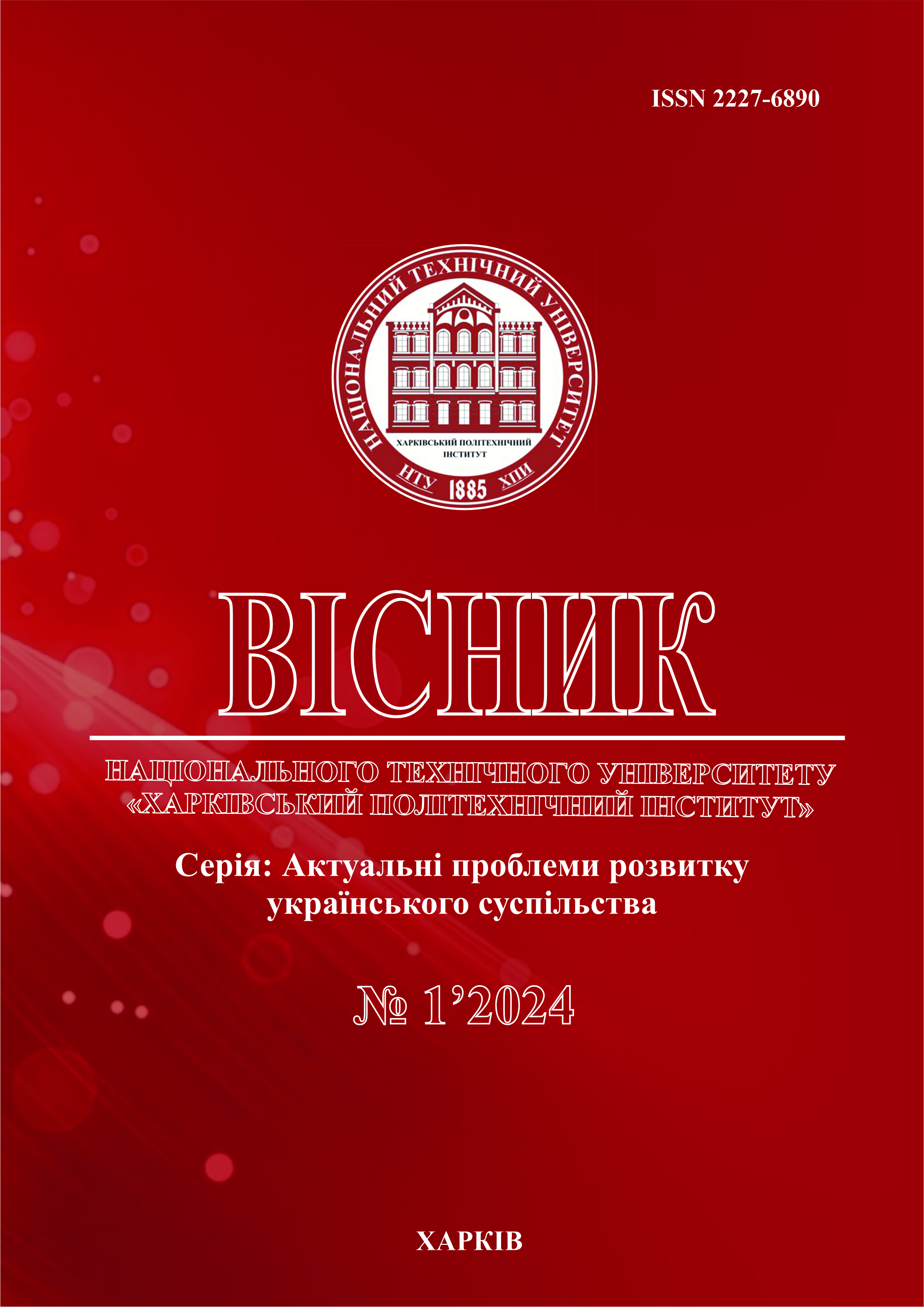КУЛЬТУРНИЙ ШОК В МЕДІАДИСКУРСІ: ФІЛОСОФСЬКИЙ АНАЛІЗ
DOI:
https://doi.org/10.20998/2227-6890.2024.1.20Ключові слова:
конфуціанство, культурний шок, цифрова культура, контекст дискурсуАнотація
У статті розглянуто філософську думку Конфуція про доброзичливість як ядро культури та обґрунтування ідеї щодо її досягнення; з’ясовано, що послідовники Конфуція досліджували та удосконалювали його вчення, збагачуючи концепцію доброзичливості та формуючи культурний дух китайського народу. Доведено роль конфуціанства у формуванні його унікального національного характеру. Розглянуто виклики традиційній китайській концепції спорідненості з боку культури цифри, що впливає і на політичне життя, і на освіту, і на повсякдення. Завдяки аналізу дискурсу медіапростору обгрунтовано вплив цифрових медіа на культуру в цілому, а також неминучість культурного шоку між традиційною культурою і культурою цифри.
Посилання
Kong Qiu. (2015). Doctrine of the Mean. Nanjing: Jiangsu Press. 265 p.
Meng Zi. (2016). Mencius. Zhong Hua Book Company. 624 p.
Xun Zi. Xunzi. (2016). Zhong Hua Book Company. 511 p.
Wang Yangming. (2021). Chuanxilu. Nanjing : Zhong Hua Book Company. 326 p.
Wang Chenchen. (2023). The cultural connotation and modern communication value of Chinese traditional festivals. Life and Partners. P. 71-73.
Zhou Meng. (2023). Chinese traditional etiquette education and its contemporary value. Rules of Law and Society. P. 60-61.
Kong Qiu. (2020). The Analects of Confucius. Zhenjiang : Hualing Press. 744 p.
Baudrillard Jean. (2000.) The consumer society (Liu, C.F., & Quan, Z.G., Trans.). Nanjing University Press. 166 p.
Huang Xian. (2023). Media intermediary and people’s media survival under the technological change. Young Journalist. P. 13-17.
Cheng JinHeng. (2011). Digital Media and Cross cultural Communication: A Critical Communication Perspective. Journal of Hubei University (Philosophy and Social Sciences Edition). P. 101-105.
Li Jiyuan. (2022). Criticism and reflection on media technology progress. Science and Technology Communication. P. 101-105.
Postman Neil. (2016). Amusing ourselves to death. CITIC Publishing Group. 224 p.
Wu Xue. (2014). Four Views on Information in the Electronic Media Environment: An Analysis of Boltzmann’s Critical Thought on Information. Journal of Beijing University of Posts and Telecommunications (Social Sciences Edition). P. 13-18.
Yu Siyang. (2021). The disappearance of “Nian”: Deconstruction and construction of traditional festivals by media technology. News Knowledge. P. 80-85.
Xing Jinlei. (2019). Analysis on the phenomenon of online red envelope carnival. New Media Research. P. 135-140.
Jiang Jianguo. (2020). Emotional consumption and identity dilemma of WeChat circle of friends. Guizhou Social Sciences. P. 32-38.
Liu, Mengzhi. (2022). From social phobia to social bull: A psychological analysis of young people’s social issues. People’s Forum. P. 114-119.
Dai Xiaoqing. (2019). Thinking under the hot phenomenon of ‘Internet celebrity’ teachers. Audiovisual. P. 234-235.
Zeng Xinglei. (2024). The inheritance of cultural symbols: The symbolism and expression of Chinese characters in traditional culture. Chinese Character Culture. P. 209-211.
Guo Jin. (2023). Harmony in diversity: The inheritance and innovation of “Paper-cutting-Chinese Characters” and excellent traditional Chinese culture. Journal of Social Sciences of Hunan Normal University (05). P. 63-71.
Lin Chen. (2023). Analysis of the Contemporary Dilemma and Inheritance Path of Traditional Chinese Character Culture. Chinese Character Culture. P. 1-3.
Tian Ning. (2021). Reflections on the Crisis of Chinese Characters Behind Network Pinyin Abbreviations. Chinese Character Culture. P. 124-125.

